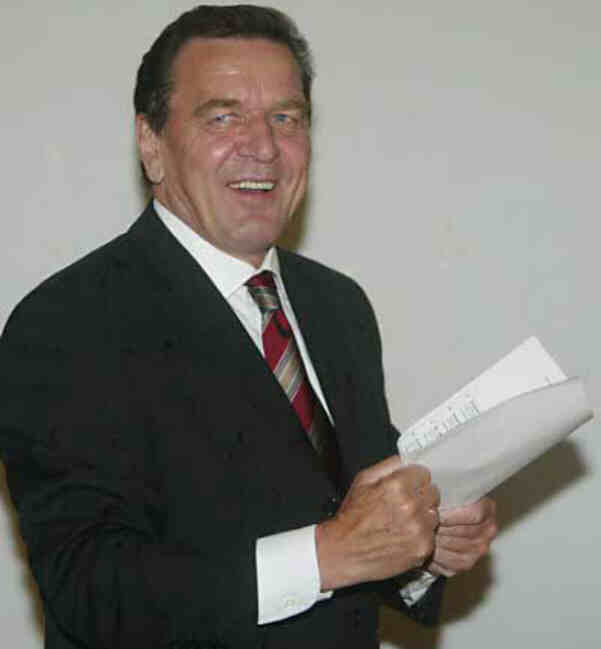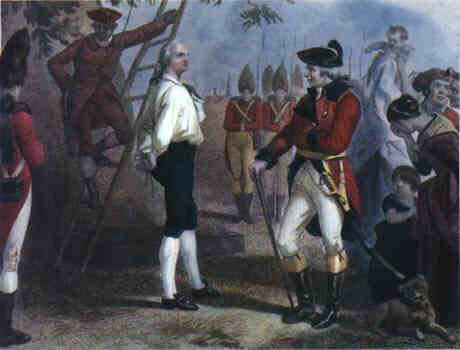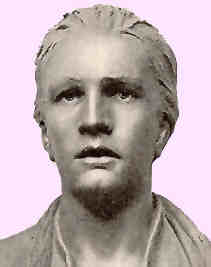Deaths which
occurred on a 22 September:
^top^
2003 Hugo Young,
of cancer, British center-left, pro-Europe, anti-Iraq-war political columnist,
chairman of the Scott Trust, which owns The Guardian and The
Observer. His final column, published on 16 September 2003, was headlined,
"Under Blair, Britain has ceased to be a sovereign state," and concludes,
"At last we see the consequences of our country's abject thrall to the U.S."
Author of One of Us (1989, political biography of Margaret Thatcher),
This Blessed Plot: Britain and Europe From Churchill to Blair (1998).
| 2002 Joseph
Nathan Kane, writer of books of facts.
Kane [1999 photo >],
born on 23 January 1899, wrote reference works that cataloged such
things as the nicknames of presidents, when the first Eskimo Pie
was created (1922), when the first camels were brought to America
(1721) and the 1849 patent number of the first safety pin in the
United States (6281). Among his books were Famous First Facts:
A Record of First Happenings, Discoveries and Inventions in the
United States (1933); More First Facts (1935); 1000
Facts Worth Knowing (1938); What Dog Is That? (1944),
a summary of the characteristics of 122 purebreds recognized by
the American Kennel Club. He also wrote an official history of the
King Solomon Lodge No. 279 of the Free and Accepted Masons, of which
he was a member.
He was not the first US factualist
(Henry W. Ruoff edited a Standard Dictionary of Facts in
1914). Kane specialized in Americana. In Kane's work one learns
that James Madison was the shortest US president, at 5 feet 4 inches,
and that Madison's last words were, "I always talk better lying
down." Mr. Kane was not just a trivialist — he was a factualist
with a conscience who cared passionately about giving credit where
credit was due.
He mentioned the New Yorker Walter
Hunt, who is believed to have devised the first US stitch-lock sewing
machine in 1832, but failed to patent it, so that credit went to
Elias Howe, A. B. Wilson and Isaac Singer, who came later.
Kane determined that the first US
commercially built automobiles were not the work of Henry Ford or
Walter Chrysler or David Buick, but of Charles Edgar Duryea, who
opened the Duryea Motor Wagon Company in Springfield, Massachusetts,
in 1895.
From Kane one learned that Grover
Cleveland had 20 nicknames, more than any other president. They
included Dumb Prophet, Buffalo Hangman, Grover the Good, Old Veto
and Perpetual Candidate.
Kane insisted that the US Declaration
of Independence was not signed on 04 July 1776. He said that it
was fairly engrossed on parchment on 19 July and not signed by 50
of those who agreed to it until 02 August 1776. Six others did not
sign it until even later.
Kane even determined that George Washington
was not really the first president of the United States. Washington
did not get the job until the Constitution was ratified. But Thomas
McKean was named president of the United States back in 1781 by
the Congress that convened under the Articles of Confederation —
eight years before Washington took office.
Kane's last book was Necessity's
Child: The Story of Walter Hunt, America's Forgotten Inventor
(1997) about the inventor of the sewing machine, the fountain pen,
and the safety pin.
After the WW I, Kane was hired by
a New York confectioner, D. Auerbach & Sons, because he could speak
and read French, German and Spanish. He eventually ran the export
division, and began writing articles about the export business for
trade journals. His material was syndicated for many years, and
he also wrote for publications including Advertising Age, Printers'
Ink and Nation's Business. He also wrote articles
for newspapers.
In the late 1920's he decided to
write his first book about achievers forgotten by history. It was
rejected by 11 publishers, but the 12th, H. W. Wilson, accepted
it, and thus in Famous First Facts the world learned that
the first sheep were imported into the United States in 1609, that
the first Black US Army major was Martin Robinson Delaney, and that
the first subway built in the US (in 1870) was the Beach Pneumatic
Underground Railway in New York. In a brief unsigned review of that
book in 1933, The Times said the author showed "a dogged resolution
of almost superhuman force."
Kane listed people who had been named
after George Washington. Besides George Washington Carver, the agricultural
chemist, there was a George Washington Julian, who ran for vice
president on the Free Soil Party ticket; as well as George Washington
Dixon, who became a minstrel; George Washington Morgan, a colonel
in the Mexican War; and George Washington Crile, a doctor in the
Spanish-American War.
His research on the origins of the
names of all the counties in the United States was published in
1955 as The American Counties: A Record of the Origin of the
Names of 3,067 Counties, Dates of Creation and Organization, Area,
Population, Historical Data, etc.
My own research has failed to
determine whether anyone ever called Kane, who never married, by
the pet name “Sugar”. |
1989 Irving Berlin, 101, songwriter, in New York City.
1979 Charles
Ehresmann, Alsatian mathematician born on 19 April 1905.
1970 Vojtech
Jarnik, Czech mathematician born on 22 December 1897. He worked
mainly on number theory.
1923 Marquess of Ripon,
game hunter, dies after shooting 52nd grouse
1920 Herbert
James Draper, born in 1864, British painter of historical and imaginative
subjects and portraits of his contemporaries. — MORE
ON DRAPER AT ART “4” SEPTEMBER
— LINKS
— Day
and the Dawn Star — Lancelot
and Guinevere — Naiad's
Pool — The
Sea Maiden (1894) — Calypso's
Isle (1897) — The Lament
for Icarus — The Water Nixie
— A Water Baby
(1900) — Tristram
and Iseult This painting was destroyed in WW II. — Sea
Melodies — The
Golden Fleece — Lamia
(1909) — Ulysses
and the Sirens — Flying
Fish —
Clyties of the Mist (The Mountain Mists). — Study
for Clyties of the Mist — The
Kelpie — Halcyone
1914 Five civilians as the German cruiser Emden
shells Madras, India, destroying 1'200'000 liters of fuel.
1914: Some 1400 British sailors as U-Boat
sinks 3 cruisers. ^top^
In the North Sea, one German submarine,
the U-9, sinks three British cruisers, the Aboukir, the Hogue,
and the Cressy, in just over one hour. The one-sided battle,
during which 1400 British sailors lost their lives, alerted the British
to the deadly effectiveness of the submarine, which had been generally
unrecognized up to that time.
The
German U-boat was a submarine far more sophisticated than those built
by other nations at the time. The typical U-boat was 214 feet long,
carried 35 men and 12 torpedoes, and could travel underwater for two
hours at a time. In the first few years of World War I, the U-boats
took a terrible toll on Allied shipping. Germany's quarantine of the
British Isles was almost successful, but in 1917 unrestricted U-boat
attacks on neutral American vessels traveling to Britain prompted
the US entrance into the war. The infusion of American ships, troops,
and arms into World War I turned the tide of the war against Germany.
|
1913: 263 people killed in coal mine explosion at Dawson
New Mexico
1906 Perhaps 16 blacks and 1 white killed
on first day of Atlanta
race riot ^top^
Though Atlanta's rapid expansion around
1900 was marked by the growth of both white and black communities,
these communities remained separate entities. Communities throughout
the South enacted Jim Crow laws to segregate blacks and to subordinate
them in almost every respect. Tensions between the races heightened
during the gubernatorial race of 1906. The two leading candidates,
Hoke Smith and Clark Howell, used the Atlanta newspapers they controlled
to wage a bitter campaign based on racial hatred. The situation reached
a climax on 22 September, when mobs of white Atlantans, enflamed by
newspaper reports of black indignities to white women, went through
the downtown area attacking and killing blacks on the streets, trolley
cars and even in stores. After a two-day rampage, 25 blacks and one
white were officially reported as dead, although unofficial counts
show that deaths on both sides were significantly higher.
—
The
news reported at the time in the Atlanta Constitution and
the New York Times. |
1870 Louis Rémy Mignot, US Hudson River School painter,
specialized in landscapes, born in 1831. — LINKS
— Sunset
on White Mountains (full size or half-size)
1890 Auguste Etienne François Mayer, French artist born
on 03 July 1805.
1837 William
George Horner, English one-shot mathematician born in 1786.
1832 Philibert-Louis Debucourt, French painter and printmaker
born on 13 February 1755.— LINKS
— La
Promenade Publique (full-size or half-size)
1828 Shaka the great Zulu
king, murdered. ^top^
He is murdered by his half-brothers
Dingane and Mhlangana, and an induna (military officer),
Mbopa, when his customary cruelty (which make Attila and Ghengis Khan
look like humanitarians in comparison) reached absolute insanity after
his mother's death (for a whole year he prohibited agriculture, milk,
and had all pregnant women, and even cows, massacred; but the last
straw was when he tried to send his impis — regiments
— on an exhausting expedition without rest from the previous
one).
Shaka,founder of the Zulu
Kingdom, had been a highly successful military ruler, who completed
the centralization of Zulu power, developed the weapons and tactics
of southern African warfare, and set about the integration of neighboring
peoples into the growing Zulu Kingdom.
Shaka, founder of the Zulu Kingdom of southern Africa, is murdered
by his two half-brothers, Dingane and Mhlangana, after Shaka's mental
illness threatened to destroy the Zulu tribe. When Shaka became chief
of the Zulus in 1816, the tribe numbered fewer than 1500 and was among
the smaller of the hundreds of other tribes in southern Africa. However,
Shaka proved a brilliant military organizer, forming well-commanded
regiments and arming his warriors with assegais, a new type of long-bladed,
short spear that was easy to wield and deadly. The Zulus rapidly conquered
neighboring tribes, incorporating the survivors into their ranks.
By 1823, Shaka was in control of all of present-day Natal. The Zulu
conquests greatly destabilized the region and resulted in a great
wave of migrations by uprooted tribes.
In 1827, Shaka's mother, Nandi, died, and the Zulu leader lost his
mind. In his grief, Shaka had hundreds of Zulus killed, and he outlawed
the planting of crops and the use of milk for a year. All women found
pregnant were murdered along with their husbands. He sent his army
on an extensive military operation, and when they returned exhausted
he immediately ordered them out again. It was the last straw for the
lesser Zulu chiefs: On 22 September 1828, his half-brothers murdered
Shaka. Dingane, one of the brothers, then became king of the Zulus. |
|
 On
a 22 September:
On
a 22 September:  1776
Nathan Hale, 21,
1776
Nathan Hale, 21,  Disguised as a Dutch schoolmaster, Nathan Hale set out on his mission on
12 September 1776. For over a week he gathered information on the position
of British troops but was captured os 21 September while returning, near
the American lines. Before being hanged he is reported to have said: "I
only regret that I have but one life to lose for my country."
Disguised as a Dutch schoolmaster, Nathan Hale set out on his mission on
12 September 1776. For over a week he gathered information on the position
of British troops but was captured os 21 September while returning, near
the American lines. Before being hanged he is reported to have said: "I
only regret that I have but one life to lose for my country."